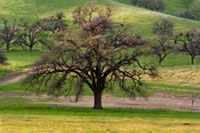Blog
Civil War Pensions
(This is Part 1 of the blog post. Part 2 appears on the Twisted Twigs for Genealogy Blog.) So many people ask us in person, or post in Facebook groups: “Where do I go to find more about my ancestor’s military service?”. The short answer is that the records you need are at branches of the National Archives and Records Administration (NARA), but how you get access to them can make a difference. In this blog post, we outline the process of requesting a Civil War Pension, and what to do if NARA replies that the Pension file is...
read moreWhere Do I Find Out About My Ancestor’s Military Service? The OMPF!
(This is Part 1 of the blog post. Part 2 appears on the Twisted Twigs for Genealogy Blog.) So many people ask me in person, or post in Facebook groups: “Where do I go to find more about my ancestor’s military service?”. The short answer is that the records you need are at branches of the National Archives and Records Administration (NARA), but how you get access to them can make a difference. Undoubtedly you have seen the military records offered on Ancestry or Fold3. These may be rosters, muster rolls or ship’s manifests...
read moreFamily History Outing: U.S. Army Transportation Museum, Fort Eustis, VA
The U.S. Army Transportation Museum tells the story of the Army’s Transportation Corps, whose unofficial motto is “Nothing Happens Until Something Moves”. The Museum focuses on fielded and experimental equipment in: Aircraft, Rail, Vehicle, Watercraft Equipment. Camp Eustis was established in 1918 as a training center for railway coast artillery. It became a Fort in 1923. The Museum has a main building, a railroad pavilion, a vehicle pavilion, a marine park and an aviation pavilion. Although the U.S. Transportation began...
read moreFamily History Outing: The Mariner’s Museum, Newport News, VA
In the history of the U.S. Navy, at the heart of its modern heritage is the U.S.S. Monitor. The “Duel of the Ironclads” was fought in Hampton Roads on 8 March 1862. The C.S.S. Virginia, built from the burned remains of the U.S.S. Merrimac, faced the U.S.S. Monitor. The result was a draw. The U.S.S. Monitor Center at the Mariner’s Museum holds stories of the battle, the sinking of the Monitor, locating the Monitor in modern times, its exploration and preservation. These stories are all presented in engaging detail. On New...
read moreBook review: “From the Emerald Isle to the Cream City”
I had a chance to review “From the Emerald Isle to the Cream City: A History of the Irish in Milwaukee” by Carl Baehr. In family history, context is incredibly important. “From the Emerald Isle to the Cream City: A History of the Irish in Milwaukee” gives the reader that context of the Irish experience of settling in Milwaukee, along with the concurrent history of Ireland. If your family includes the initial settlers of Milwaukee or the famous or infamous, you may find details of their lives among the pages. Even if your...
read moreNew Tools from Ancestry and MyHeritage
RootsTech has become the time and place for new genealogical announcements and RootsTech 2019 did not disappoint! This blog post focuses on new some new tools available from Ancestry and MyHeritage that you need to check out. While there is plenty of buzz about these tools, I recommend that you check in with the experts, then try them yourself. The value of the tools is based on personal preference, so you want to form your own opinion. At the end of the post there is homework to do, but not to turn in! From...
read moreRootsTech 2019 Videos and Handouts
Rootstech 2019 is over and if you did not make it, you can still be inspired by viewing some of the videos and all of the handouts at the link below. It is great that Rootstech lets us all be a part of it. Videos for some sessions can be viewed here. The handouts (syllabi) for the sessions can be viewed and downloaded...
read moreResearching Florida WWI Ancestors
Learning the military organization for your ancestor who served in WWI is important. With that information, you can find out what your ancestor did including duties, travels and battles. The State Library & Archives of Florida’s Florida Memory website has a Collection of World War I Service Cards. This collection includes the cards for Floridians in the Army, Navy, Coast Guard and Marine Corps during WWI. From this website you can search for a specific service member’s card or browse all the service cards. As an example,...
read more7 Categories for Genealogical Goals
I t’s a New Year! For many, each new year comes with resolutions. These are typically about health and well being. How about some for genealogy? Since we are at the end of January, you need only do 11 to cover the rest of the year. The first step is to define your current genealogical goals. You might be looking into one branch of the family, trying to find immigrants place of origin or make progress on a lineage society application. Make a list of your goal for each month. To organize your efforts, and keep track of what you did...
read moreNARA Record Retrieval: Interview with Deidre Erin Denton of Twisted Twigs on Gnarled Branches
Twisted Twigs On Gnarled Branches Genealogy has been changing the way researchers receive documents held by the National Archives. It is a NARA Record Retrieval Service. They perform access to records held at Archive 1 (Washington D.C.), Archive 2 (College Park, Maryland), the National Archives in St. Louis, Missouri, and the National Personnel Records Center (NPRC). Since NARA and the NPRC have been working to restore many of the Army or Air Force service record veteran’s military records that were “lost” in the 1973 Fire,...
read more


